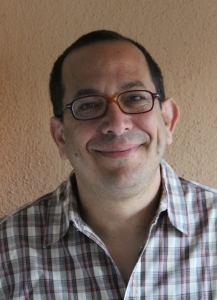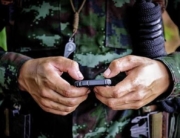by Claudia Bustamante
For the next year, the USC School of Social Work will benefit from the research and practical expertise of the Israeli Defense Forces mental health department.
Eyal Fruchter, a colonel and former head of the Mental Health Division in the Israeli Medical Corps, has joined the school as a visiting scholar, focusing his yearlong tenure here on researching post-traumatic stress disorder, mental health resiliency and leadership from a multicultural perspective. Fruchter will also focus on augmenting the education and training of mental health officers through the creation of online courses and establishment of regular group meetings.
The latter is an extension of work that he had undertaken in Israel with success and hoped to bring to American audiences.
He said the world of mental health is fairly isolated for Israeli officers and clinicians. These individuals must make decisions on their own about a service member’s mental health, including ascertaining if someone is suicidal and how best to address it on a case-by-case basis. For example, sometimes taking a soldier’s weapon away might offend him and exacerbate the situation; sometimes letting him keep it puts him in danger.
“These are the sort of decisions that you might want to talk about and consult with a group of colleagues,” said Fruchter, who held weekly group meetings with all Israeli mental health officers. “You know you’re not alone struggling with these decisions.”
Fruchter will lead regular online meetings with a group of clinicians and create a course housed on the Center for Innovation and Research on Veterans & Military Families’ (CIR) continuing education and training platform, and tailored to the specific topics and handling of certain issues that emerge during the job and in sessions.
“CIR is grateful for the opportunity to work with international scholars who can provide expertise and fresh perspectives to a whole new group of behavioral health practitioners working to address the mental health needs of service members and veterans,” said Anthony Hassan, CIR director and clinical professor. “By working collaboratively, we also hope to rely on each other’s research expertise to further develop best practices and policies that will build the mental health resiliency of the armed forces, regardless of nationalities.”
In 2009, the University of Southern California became the first major research institution to offer a military social work specialization. Numerous reports and research showed that increased numbers of service members were returning from Iraq and Afghanistan suffering from combat stress disorders, like post-traumatic stress disorder and traumatic brain injury. The USC School of Social Work was ideally situated to help address their needs and since then, through the center, has sought to tackle some of these universal issues through a multi-faceted approach by reaching out to international colleagues, including from the United Kingdom, Canada and Israel.
One of the main research ideas that Fruchter plans to pursue this year is a combined study of PTSD prevention that can include the unique value provided by both Israeli and American combat experiences.
“Unfortunately, because of the struggles in Israel, we know that a paratrooper will see conflict. We can prepare him,” Fruchter said. “The primary prevention research will be in Israel. What should be researched here is treatment.”
Through these research projects and the implementation of online courses and group learning, American behavioral health providers and service members will continue to benefit from Fruchter’s USC visit long after he returns to Israel.








